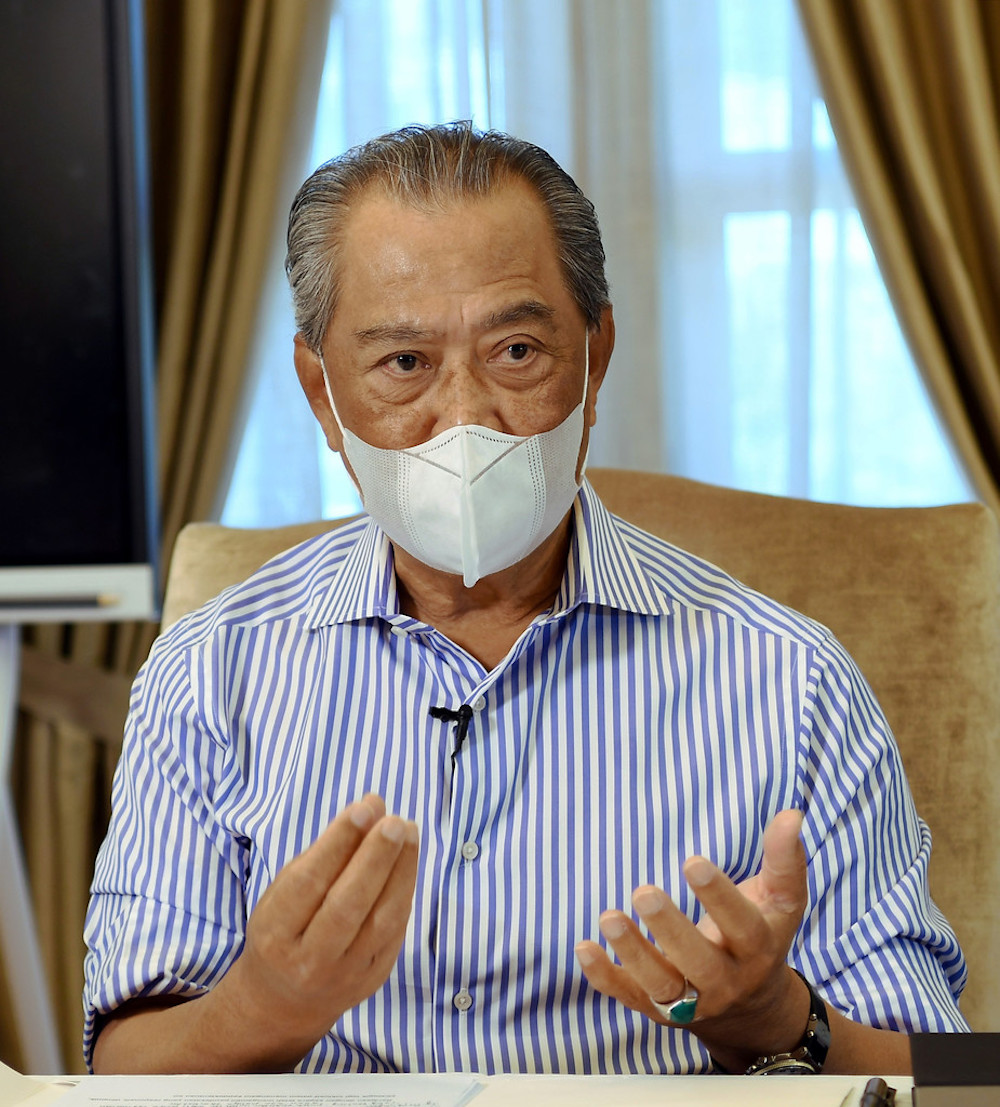KUALA LUMPUR, Feb 28 — Malaysia’s international relations have remained largely unaffected by the Covid-19 pandemic, Prime Minister Tan Sri Muhyiddin Yassin said.
He said global travel restrictions had not been a hurdle to maintain strong and friendly foreign ties, and cited the Asia-Pacific Economic Cooperation (APEC) virtual summit hosted by Kuala Lumpur late last year as testimony to this.
The prime minister said given a choice, he personally would have preferred eye to eye meetings.
However, he stressed that the global pandemic does not mean the government must pay less attention to maintaining bilateral relations.
By preserving strong and friendly ties, Malaysia will continue to enjoy the benefits of multilateral international cooperation, he said.
“Alhamdulillah, for instance, during the APEC summit that we successfully hosted, I interacted virtually with global leaders. Of course, I would have personally preferred physical visits, but it is (currently) not possible.
“And that is why the (Covid-19) vaccine roll-out is important. It is not solely for me or business delegations to go abroad, but once we are inoculated, we feel safer. Perhaps this would then lead to the opening of our borders and strengthen our foreign relations further, Insya-Allah,” he said in a special interview with Bernama and several other media organisations at his residence in Bukit Damansara here in conjunction with his first anniversary as prime minister.
The interview was aired on Buletin Bernama of Bernama TV at 8 pm today.
Towards this end, the prime minister said a series of visits to strengthen bilateral ties have been planned in the next few months, beginning with Saudi Arabia and the United Arab Emirates (UAE) in March.
“There are plans to visit Saudi Arabia and the United Arab Emirates in March, and also to China after that as I believe long-standing ties must be consolidated. There are benefits in terms of trade, investment, education, culture, arts and so on.
That is why, if possible, relationships with our ASEAN neighbours must be prioritised as well.
“There are also planned visits to Brunei, and Japan and Korea after that. We already have very strong bilateral ties and agreements with these countries in terms of commerce, investments and education,” he said.
Muhyiddin also talked about his official visit to Indonesia early this month, saying ties between both nations carried significant economic importance as the republic has been touted as an emerging superpower, like China.
“Malaysia has always held firm with its foreign policies and I am continuing to defend them, but policies alone are insufficient if they do not bring benefits in return, and that is why we must forge close bilateral ties.
“This is also why I chose (to visit) Indonesia during these uncertain times as Pak Jokowi (Indonesian president Joko Widodo) told me ‘Welcome Pak, the people of Indonesia are waiting’, and so I went,” Muhyiddin said.
As for Malaysia’s foreign policies, the prime minister said the Perikatan Nasional-led government has always maintained policies that augur well for the country, and had also never overlooked foreign issues.
He said Malaysia had never taken its foreign relations lightly, including with China as this could prove detrimental to the country.
“They (issues) are not being overlooked, but because of the circumstances and the situation... but our foreign ministry, the key representative that initiates foreign relations, operates as usual. The (Foreign) Minister has been communicating virtually, via phone calls and so on and I get scheduled reports.
“If there are certain issues, Malaysia is kept abreast. Issues concerning Myanmar or the Middle East, we are aware of what is going on.
“Despite this being a new government, we have long held a consistent stand on certain issues,” he said.
Besides ASEAN, Muhyiddin said among Malaysia’s main foreign policies is preserving ties with Islamic countries as Malaysia is internationally regarded as a renowned Islamic nation.
“Our relations with other Islamic countries also bring benefit to others as well.
“China being our largest trading partner cannot be taken lightly because if we do not have close ties with them, Malaysia stands to lose out.
“This is why I have plans to visit the country and meet President Xi Jinping to discuss how China and Malaysia can work together on agendas decided before this,” he said. — Bernama



















